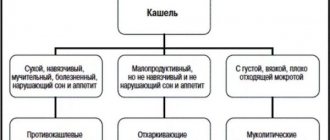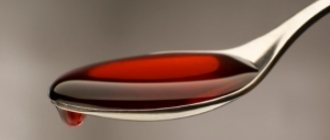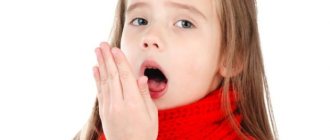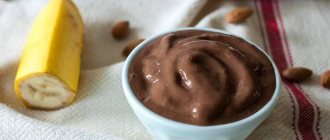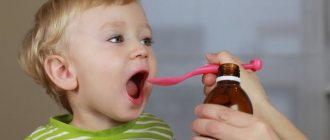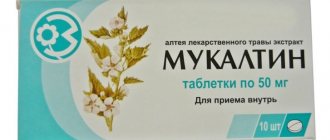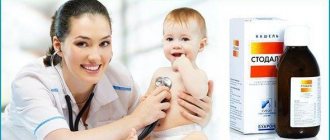It's winter outside, and the season of acute respiratory infections, acute respiratory viral infections, and influenza is in full swing. Any viral or bacterial infection that enters the body through the respiratory system will lead to a cough. In this case, it is necessary to fight not with a cough, but with an infection. Of all the variety of cough medications, only drugs that block the cough reflex in the brain are actually antitussives. Everyone else, one way or another, fights the root cause, helping the respiratory tract to clear phlegm.
Advantages of syrups in the treatment of cough in children
Very often children refuse to take cough medicine. This may be due to the unpleasant taste of the medicine or irritation of the throat mucosa due to inflammation. The baby may refuse treatment, even if the tablet is crushed and dissolved in water or milk.
In such cases, doctors recommend using cough syrups. This dosage form has a number of advantages compared to tablets and powders:
- The syrup has a thicker consistency, due to which it envelops the inflamed mucous membrane, reduces and prevents irritation. Therefore, when taking such medications, a small patient does not experience pain, discomfort in the throat, or a gag reflex;
- antitussive syrups for children have a pleasant taste and aroma, so children take them with pleasure;
- liquid preparations are easy to dose; manufacturers often place a special measuring spoon in the package for this purpose;
- Thanks to the liquid form, the medicine is easily absorbed in the digestive tract, so a much larger part of the active substance penetrates the bloodstream and reaches its target in the respiratory organs. This also determines a longer therapeutic effect when using syrups.
Based on the features listed above, this form of antitussive drugs is considered preferable for the treatment of children, especially under one year of age. Pediatricians and parents all over the world use syrups when signs of respiratory diseases appear in babies.
Classification
For treatment to be effective, you must choose the right remedy. It is not recommended to select syrup for a child on your own; it is better to have a specialist do it. The doctor will be able to correctly assess the baby’s characteristics and determine the presence of indications and contraindications for use depending on age.
First of all, you should find out what type of cough is bothering the child. If it is dry, unproductive, and not accompanied by sputum production, it is recommended to use medications that reduce the activity of the cough center. The use of such products relieves the baby from constant irritation of the oropharyngeal mucosa, makes it possible to sleep and restore the strength necessary for recovery.
Syrup for wet coughs, when there is sputum production, has a double effect. It thins mucus and promotes its removal from the respiratory tract. In most cases, it is necessary to use both types of antitussives - in the early stages of the disease, medications for dry cough are indicated, then switch to syrups for wet cough.
Thus, according to the principle of action, these drugs are divided into three groups:
- suppresses the cough reflex;
- expectorants;
- mucolytic.
Its composition also plays an important role in choosing a product. Plant-based preparations are considered the safest. However, there are currently many synthetic syrups that are more effective and practically do not cause side effects when used correctly. Thus, the following types of antitussive drugs are distinguished depending on the composition:
- vegetable - they are made from the herbs thyme, marshmallow, ivy, etc. They are quite effective and rarely lead to unwanted reactions. They are most often used to treat children under one year of age;
- synthetic - these types of syrups are made from chemical components and often, in addition to the antitussive effect, also have anti-inflammatory, antibacterial and antispasmodic effects. Therefore, such syrups cope well with attacks of annoying dry cough and improve sputum discharge;
- combined - such medicines contain both herbal and chemical components. They are used to suppress cough, reduce the viscosity of mucus and cleanse the respiratory tract.
Currently, the last two types of syrups are most often used.
The best syrups of different types
Even if your baby has a common cold or flu, you go to the pharmacy and ask for cough medicine, the pharmacist will definitely ask: which one do you need? Therefore, we have divided this rating into three parts in order to cover all popular categories of drugs.
And don't forget! Many medications are not suitable for infants (that is, children under one year old)!
The most effective expectorants
As pediatricians say, during a cold, snot flows not only from the nose, but also deep into the throat. The mucus enters the lungs, teases them, and the body responds with a cough (the so-called productive cough, a “product” in which phlegm is released in the bronchi). In this case, you need a medicine that will increase the amount of sputum, because the more it is coughed up, the more virus will be eliminated from the body.
- "Pertussin" . Most likely, you were treated with it too. This syrup costs a penny, but it is increasingly difficult to see it on pharmacy shelves - it is more profitable for pharmacists to sell something more expensive. It is very sweet and contains thyme extract, although it also contains ethyl alcohol. Of the minuses: it should be stored not in the first aid kit, but in the refrigerator. The syrup is not allowed for up to a year, and even up to three years it can be taken with caution.
- "Liquorice root" . Not only an antitussive, but also an antiviral agent. This is another natural medicine for pennies (although the same ethyl alcohol is used as a preservative). The fly in the ointment is the rare side effects that still occur in patients: urticaria, heartburn.
- "Bromhexine" . It has not only an expectorant, but also a slight mucolytic effect. But this is a medicine for children from 6 years old. It is prohibited for pregnant women in the first trimester. Among the contraindications is a stomach ulcer (although, of course, this applies more to sick parents who finish syrups for their recovered babies).
The best mucolytics
They are prescribed if the cough is dry, that is, there is sputum in the bronchi, but it is very viscous: the child feels that there is something in the throat, but cannot cough up. Medicines should thin the mucus, helping it to clear, that is, coughing up.
- "Doctor MOM" . “A bouquet of herbs” in every spoon, which also has a pleasant taste. The line of this manufacturer (it also contains lozenges and a topical ointment) is popular with lovers of natural medicines. Contains: ginger, basil, licorice, elecampane, aloe, and more. In addition, this company brings nostalgia to many mothers - not so long ago, their own mothers, now grandmothers, bought this medicine for them. It can be given to children from 3 years of age, not only for the treatment of cough, but also as a preventive measure. You can drink it for a long time. True, it is not suitable for everyone - some children may be allergic to the components of the medicine.
- "Lazolvan" . Sweet syrup with berry flavor and anti-inflammatory effect. Few people know that this is almost the same as Ambroxol (only the taste is slightly more pleasant). This inexpensive medicine is prescribed even to infants. Its unfortunate drawback: if the illness is prolonged and the child takes Lazolvan for too long, his stomach will not like it and symptoms such as vomiting, heartburn and abdominal pain may appear.
- "Ambrobene" . In composition, it almost repeats the previous syrup. It has a sweet taste and is relatively inexpensive. Can be used at any age (even from the first months of life). The only thing that may worry mothers is a solid list of side effects.
The most popular combination products
Some mothers listen to their baby’s cough for a long time, but everyone cannot understand whether it is productive or not. These syrups were created for them: they transform a dry cough into a wet one, and when wet, they help remove phlegm.
- "Bronholitin" . In addition to antitussive, it has an anti-inflammatory, antispasmodic, antimicrobial effect, and dilates the bronchi. Allowed for children under three years of age, but prohibited for pregnant and lactating women. Its advantages: natural composition (basil oil), inexpensive. Disadvantages: cannot be taken for a long time; has a side effect in the form of insomnia.
- "Stodal" . This syrup with a pleasant caramel taste is suitable for family therapy (that is, it is useful if the child has infected the mother and both need treatment), as it is suitable for both adults and children. Moreover, doctors often allow it for pregnant women. The box contains a convenient dispenser cap. The disadvantages of this medicine include the high price, as well as ethyl alcohol in the composition.
- "Bronchosan" , drops. Mucolytic and expectorant in one bottle. It contains menthol, as well as oils of anise, fennel, mint, motherfruit, and eucalyptus. Allowed from 2 years of age, not recommended for pregnant and lactating women. Has an antiseptic, anti-inflammatory effect. Minus: contains ethyl alcohol.
But is it necessary to treat a child’s cough with medication if it is common and of a cold nature? Dr. Komarovsky says: no! But don’t let the situation take its course? Of course it's not worth it. A clear and useful lesson from the most famous pediatrician in the CIS - in this video:
Popular syrups for dry cough in children
Gedelix
This dry cough syrup is based on herbal ingredients. It is recommended for use in children over one year of age with infectious processes in the lower and upper parts of the respiratory system. When used correctly, it can alleviate the patient’s condition and improve the discharge of mucus from the bronchi.
Sinekod
The active ingredient of this product is butamirate. It is indicated for use for dry cough due to various reasons - inflammatory diseases of the larynx, whooping cough, bronchospasm, etc. On the recommendation of a doctor, it can be given to children up to one year old.
Popular wet cough syrups
ACC
This wet cough syrup has good activity when it is difficult to clear mucus from the respiratory tract. The active ingredient is acetylcysteine, which is a powder. Before use, it is dissolved in water to obtain a suspension. Recommended for use in children over two years of age.
Lazolvan, Ambrobene
The active ingredient of these products is Ambroxol. They are indicated for use in case of wet cough, when the sputum is difficult to clear and there is no improvement in the patient’s condition. Lazolvan and Ambrobene are indicated for pneumonia, bronchitis and other inflammatory pathologies of the respiratory system. Can be used by children from birth, but only on the recommendation of a doctor.
Drugs for adults
Products for adults are developed according to a formula with an increased concentration of active elements. This explains the high efficiency of the products.
Ambrobene
It has a liquid consistency, a yellow tint and a raspberry smell. Ambrobene quickly gets rid of the problem. The effect occurs half an hour after use and lasts for 6-12 hours. Ambrobene is not recommended for use in case of subjective intolerance or allergic reactions to fructose or glucose-galactose malabsorption.
In addition, the active elements penetrate the placenta and enter breast milk. For these reasons, Ambrobene is contraindicated during pregnancy and breastfeeding. Approximate cost - 130 rubles.
Ambroxol
This is a cheap drug that is a clear, colorless liquid with an apricot aroma. The main active element is ambroxol hydrochloride. Ambroxol has mucolytic and expectorant properties. Contraindicated for women during pregnancy, children under 12 years of age and patients with subjective intolerance to any substance in the composition.
You can buy Ambroxol for 90 rubles.
Ascoril
This is a combined remedy with expectorant, mucolytic and bronchodilator properties. Ascoril can also be used for the treatment of bronchopulmonary diseases. Approximate price - 280 rubles.
Lazolvan
It is a colorless substance with the aroma of wild berries. The main active element is ambroxol hydrochloride. Thanks to this, Lazolvan has mucolytic and expectorant properties. Recommended for use in cases of difficult mucus discharge.
Lazolvan should not be used in the following cases:
- subjective fructose intolerance;
- while carrying a baby in the first trimester;
- during lactation;
- children under 12 years old.
Approximate price - 250 rubles.
Joset
This is a combination medicine with mucolytic, bronchodilator and expectorant properties. Contains several active ingredients at once - bromhexine, menthol, guaifenesin, salbutamol. Thanks to this composition, Joset has a positive effect on the motility of the bronchial mucosa, helps to increase mucus production and dilute it.
The product is contraindicated for certain diseases, subjective intolerance to any element included in the composition, during pregnancy and breastfeeding, for children under 6 years of age. Approximate cost: 220 rubles.
Gedelix
The composition contains various components, including ivy extract. Gedelix has mucolytic properties. Do not take together with antitussive products.
Contraindications for use:
- children under 2 years of age;
- predisposition to laryngospasm;
- bronchial asthma.
Gedelix is recommended to be taken three times a day with plenty of water. Duration of therapy is a week. Estimated cost: 400 rubles.
Clenbuterol
This is a universal medicine that can be used to treat any type of cough. Clenbuterol promotes expectoration, moisturizes the airways, preventing dryness, soothes irritated mucous membranes, and relieves pain.
The medicine is contraindicated in cases of subjective intolerance, children under 6 years of age, women during pregnancy, breastfeeding, and certain pathologies. It is recommended to take Clenbuterol according to the instructions to avoid such effects. Approximate price - 350 rubles.
Rengalin
It is a colorless or almost transparent liquid. The basis is antibodies to histamine, morphine and bradykinin. Rengalin also contains fructose. Can be taken for dry, wet and allergic coughs, as well as for bronchospasm.
Estimated cost - 150 rubles.
Fluditek
It is a clear green liquid with a caramel aroma. Fluditec reduces the synthesis of mucus, due to which the problem gradually disappears.
Contraindications:
- gastrointestinal ulcers during exacerbation;
- chronic kidney pathology, characterized by damage to the glomeruli of this internal organ;
- cystitis.
Approximate price - 370 rubles.
Bronholitin
This is an inexpensive and effective cough syrup, recommended for adults. The main components are ephedrine and glaucine. Bronholitin is a complex action drug. Recommended for use for dry cough.
Approximate price - 120 rubles.
Syrups with expectorant effect
Expectorant syrup is indicated for use in:
- difficulty in sputum discharge;
- absence of a cough reflex with impaired airway patency.
Such drugs have an irritating effect on the gastric mucosa, which leads to stimulation of the respiratory center. Therefore, after using an expectorant, the child’s cough intensifies. There are also drugs from this group that begin to act only after absorption into the gastrointestinal tract; the reflex in such cases occurs when the bronchi are irritated.
Let's look at several of the most common inexpensive representatives of this group of syrups.
Bronchicum
This medicine is made from the thyme plant. It is more often used in the presence of inflammation in the upper parts of the respiratory system. Therefore, it is prescribed for the treatment of bronchitis, sinusitis, pharyngitis, which are accompanied by a hacking cough. This allows you to improve the removal of mucus from the respiratory tract and create conditions for recovery. Children under one year old are allowed to use Bronchicum starting from 6 months.
Gerbion
It is also an herbal remedy. The main component is plantain, which also has an expectorant effect. This drug is indicated for use from the age of two years. Herbion is also often prescribed for inflammatory pathology of the upper respiratory tract.
Pertussin
This is an antitussive suspension, which, in addition to herbal components, contains potassium bromide. It is allowed to be given to children from three years of age if they have tracheitis, bronchitis, tuberculosis and other inflammatory pathologies of the respiratory system.
List of expectorant cough syrups
All expectorant syrups are divided into two types:
- Reflex type - they have an irritating effect on the gastric mucosa, which accelerates the process of mucus production in the respiratory tract. In addition, peristalsis in the bronchi improves, stimulating the removal of mucus from small bronchioles to large ones, and then to the trachea. As a result, we get a productive wet cough, which effectively clears the bronchi of stagnant mucus. Mostly syrups of plant origin have such reflex properties.
- Direct resorptive nature - these are most often synthetic and combined syrups. After the full process of absorption of the healing substances of these same expectorant syrups in the intestinal tract, the bronchial mucosa is irritated, which provokes an increase in the secretion of liquid sputum, stimulating its rapid excretion.
Note ! The main important feature of children's cough syrups is their ease of use and pleasant taste that do not repel the child.
Vegetable origin
When choosing an expectorant syrup of plant origin, pay attention to the beneficial and negative consequences, because not every herbal remedy may be suitable for your case.
As practice shows, herbal syrups are an inexpensive way to effectively treat coughs. They have high quality characteristics with a minimum of negative impact. It is especially good to use various kinds of syrups with a single-component component if there is an intolerance to any synthetic ingredient of other drugs.
Important ! The use of herbal syrups is permissible only if there is no allergy to the components of the drug. To check, you can give half a single dose and see how the child’s body reacts. If no unnatural symptoms are detected, you can use the medicine according to the instructions.
| № | Name | Compound | Method of use | Contraindications |
| 1 | Gedelix | Ivy, extractant, anise oil, macrogolglycerol hydroxystearate. | · up to one year - half a measuring spoon (2.5 ml) once a day (diluted with water), · 1–4 years old - 2.5 ml 3 times a day (once a day), · up to ten years - 2.5 ml 4 r/s, after 11 years - 5 ml 3 r/s. Should only be consumed after a heavy meal | Particular sensitivity to the extract, inflammation of the stomach. For children under three years of age only after consultation with a doctor. |
| 2 | Alteyka | Marshmallow root extract. | Allowed for use from birth. Until the age of six, dilute the syrup with boiled water. · up to 2 years - 2.5 ml (half a tsp), · up to six years - 1 tsp. 4 r/s, · up to fourteen years - 2 tsp. 4–6 r/s, · after fourteen - 3 tsp. 4–6 r/s. | There may be intolerance to the drug or an allergic reaction; it is not recommended for use in diabetes mellitus. |
| 3 | Doctor Mom | Extracts of aloe, basil, ginger, licorice. | · From three to six years - 2.5 ml three times, · up to fourteen - 5 ml three times, · from 14 years - 10 ml three times. Take strictly for up to five days! | Sensitivity to the composition, gastrointestinal disease, use with other medications that reduce sputum production. |
| 4 | Gerbion | Plantain, mallow, vitamin C, sucrose. | · 2–14 years – one tsp. three times, after 15 years - two tsp. three times. | Intolerance, stomach and intestinal diseases, carbohydrate metabolism disorders. |
Synthetic
There is a false belief among parents that synthetic medications are worse than naturally synthesized syrups. However, it is not. Many synthetic medicines, although they have contraindications, can also treat newborn babies, which is not indicated for everyone with herbal formulations, due to a possible allergic reaction.
Worth paying attention ! Any synthetic medicine requires significant fluid intake, this will enhance the therapeutic effect and the sputum will be cleared faster.
| № | Name | Compound | Terms of use | Contraindications |
| 1 | ACC | The main substance is acetyl cysteine. | · from two to six years - 1 m.l. 2–3 r/s, · up to fourteen years - 1 m.l. 3-4 r/s, · after fourteen - 2 m.l. 2–3 r/s. | Used after a doctor’s prescription in the absence of diseases of the gastrointestinal tract, duodenum, or asthma. |
| 2 | Ambroxol | Ambroxol hydrochloride, benzoic acid, glycerol, sorbitol. | · from 2 to 6 years - 1.25 ml 2–3 rubles, · up to twelve years — 2.5 ml 3 rubles, · after twelve years — 5 ml 2–3 rubles. | It is not recommended for use in the presence of intolerance to the components, deficiency of enzymes in the digestive system that catalyze the breakdown of fructose, gastric ulcers or duodenal ulcers. |
| 3 | Lazolvan | Ambroxol, sorbitol, hydroxyethylcellulose, benzoic acid, propylene glycol. | · up to two years - 2.5 ml 2 r/s, · up to six years - 2.5 ml 3 r/s, · up to twelve years - 5 ml 2-3 r/s, · over twelve years - 10 ml 3 r/s With. | Do not use for allergic intolerance to ambroxol, and kidney and liver disease. |
| 4 | Ascoril | Salbutamol, bromhexine hydrochloride, guaitenesin, menthol, sorbitol, glycerol, propylene glycol. | · Up to six years - 5 ml 3 r/s, · Up to twelve years - 5–10 ml 3 r/s, · after twelve - 10 ml 3 r/s. | Prohibited if you have heart disease, high blood pressure, endocrine system disease, gastrointestinal tract, kidney or liver diseases. |
Combined
If you cannot cope with the disease with herbal syrup, and you need an additional active element that enhances the expectorant effect, choose combination drugs that combine the beneficial properties of herbal components and additional synthetic auxiliary agents.
Combined syrups are a good way to quickly cope with a cough using herbal ingredients, accelerating the process of removal of mucous accumulations from the bronchi.
| № | Name | Compound | Terms of use | Contraindications |
| 1 | Pertussin | Thyme and potassium bromide, ethanol | · up to 2 years - 2.5 ml 3 times a day, · up to 6 years - 5 ml 3 times a day, · up to 12 years - 5-10 ml 3 times a day, · from 13 years old - 1 tbsp. l. 3 r/s. | Do not use with cough medications. |
| 2 | Fluditek | Carbocisteine, sodium hydroxide, methyl parahydroxybenzoate. | · up to two years - 5 ml 1-2 r/s, · 2-5 years - 5 ml 2 r/s, · over 5 years - 5 ml 3 r/s. | Do not use if you are intolerant to any of the ingredients; it should not be taken together with antitussive drugs. |
| 3 | Bromhexine | Bromhexine hydrochloride, oregano oil, fennel, mint, eucalyptus, anise oil, levomenthol. | · over 11 years old - 8–16 ml 4 r/s, · from 6 years old — 8 ml 3 r/s, · up to 6 years old — 2 ml 3/s. | Hypersensitivity to the composition. |
| 4 | Joset | Bromhexine, guaifenesin, salbutamol. | · 3–6 years – 5 ml 3 times per day, · Up to twelve years – 5–10 ml 3 times per day, · after twelve years – 10 ml 3 times per day. | Inadmissible for liver and kidney failure, ulcers, diabetes, glaucoma. |
Parents should understand the full responsibility when choosing expectorant syrups on their own without first consulting a pediatrician. Only a doctor can correctly determine the characteristics of the ongoing disease and, in accordance with the indications, determine effective treatment.
To protect your baby from the unforeseen consequences of an incorrectly prescribed medication, you should consult with a doctor you trust or get a professional opinion from several specialists in your field.
Properly selected syrup will stimulate the thinning of mucus and will help the child cough it up more easily. Thus, all bacteria and pathogens will be removed from the bronchi much faster.
Combined action syrups
In order to simplify the treatment regimen and not prescribe a large number of drugs, the doctor may recommend using a combined antitussive drug. A complex medicine, when used correctly, can significantly improve the patient’s condition and speed up the recovery process.
Dr. MOM
This is a complex syrup that contains plant components, various oils and extracts that have an expectorant effect and relieve inflammation of the mucous membrane. Doctor MOM syrup is recommended for the treatment of children from three years of age who do not have a tendency to allergies.
Erespal
This syrup can be given to children from the age of two. It does not affect the state of sputum, but helps to expand the lumen of the airways and improves their patency.
Ascoril
This suspension combines the effect of Salbutamol, Bromhexine and Guaifenazine. This means that it not only reduces the viscosity of sputum and improves its discharge, but also expands the lumen of the bronchi. Ascoril is indicated for use in young children for pneumonia, bronchitis, tracheitis and other pathologies.
Review of popular drugs
Let us highlight 5 drugs in syrup form that have proven effective at the stage of productive cough in children over three years of age.
| Name (active substance), permitted age | Directions for use and dosage | Adverse Reactions/Contraindications | Average price, rub. |
| PERTUSSIN (extract of liquid thyme or liquid thyme), 3+ | From 1/2 tsp. up to 1 dessert spoon 3 times a day | Allergic reactions, heartburn Hypersensitivity, decompensated chronic heart failure | 100 ml – from 20 |
| SUPRIMA-BRONCHO (herbal preparation), 3+ |
| Possible allergic reactions to the components of the drug Hypersensitivity | 100 ml – from 140 |
| DOCTOR MOM (herbal preparation), 3+ |
| Possible allergic reactions Hypersensitivity to the components of the drug | 100 ml – from 180 |
| JOSET (bromhexine), 3+ |
| Headache, dizziness, increased nervous excitability, sleep disturbance, drowsiness, tremor, convulsions, nausea, vomiting, diarrhea, exacerbation of gastric and duodenal ulcers Tachyarrhythmia, myocarditis, aortic stenosis, decompensated diabetes mellitus, thyrotoxicosis, glaucoma, hepatic and/or renal failure, peptic ulcer of the stomach and duodenum in the acute phase, gastric bleeding | 100 ml – from 190 |
| AMBROGEXAL 6 mg/ml (ambroxol), 2+ |
| Allergic reactions, anaphylactic shock, allergic contact dermatitis, changes in taste Hypersensitivity to ambroxol and other components | 100 ml – from 250 |
Pertussin
The thyme herb in this remedy has an expectorant effect, increases the amount of secretory secretion from the mucous membrane of the upper respiratory tract, helps to liquefy mucus and accelerate its elimination. Pertussin syrup contains sugar , which must be taken into account in patients with concomitant diabetes mellitus.
Suprima-Bronchi
Contains 8 herbal components (extracts of adatoda vascularis, licorice, turmeric, holy basil, ginger, nightshade, long pepper, cardamom) - an important nuance when prescribing to children with allergies:
- Adatoda vasika relieves spasms and helps to expectorate phlegm.
- Licorice relieves pain, has a calming, expectorant, and anti-inflammatory effect.
- Turmeric is an antiseptic with analgesic and anti-inflammatory effects.
- Basil helps relieve fever, is also an antiseptic, and has an expectorant effect.
- Ginger relieves inflammation.
- Nightshade has anti-allergic properties, relieves inflammation and fever.
- Cardamom has a bronchodilator effect and has antiviral activity.
- Pepper suppresses bacterial activity and eliminates allergic reactions.
The course of treatment is 2-3 weeks.
Doctor Mom
It contains 11 herbal components (extract of holy basil, licorice, long turmeric, real ginger, adhatoda wasiki, Indian nightshade, elecampane, cubeba pepper, terminalia belerica, aloe Barbados, menthol). This fact should be taken into account when prescribing the drug to children with allergies .
The course of treatment is 2-3 weeks. Increasing the duration and conducting repeated courses of treatment is possible on the recommendation of a doctor.
Joset
It should be used with caution in case of diabetes mellitus, arterial hypertension, or a history of gastric and duodenal ulcers. The drug may turn urine pink. It is not recommended to drink alkaline drinks.
Ambroxol
It should not be taken simultaneously with antitussive drugs that can inhibit the cough reflex (for example, codeine), because this may make it difficult to clear thin mucus from the airways. The drug should be used with caution in patients with a weakened cough reflex or impaired mucociliary transport due to the possibility of sputum accumulation.
Patients taking ambroxol should not be recommended to perform breathing exercises. In seriously ill patients, aspiration of liquefied sputum should be performed. In patients with bronchial asthma, syrup may increase cough. It is not recommended to take it immediately before bedtime.
Features of use in children and contraindications
When treating inflammatory diseases of the respiratory system in children, caution should be exercised. This is especially true for babies under one year old, since the use of the wrong medication can lead to a significant deterioration of the condition.
How do you know which drug is best from all those on the market? It is better to entrust the choice of syrup to a specialist. This will help prevent many complications of the disease, the transition of the acute form of the disease to chronic.
Cough is a symptom that can occur with a wide variety of diseases. In some cases, it may not be associated with pathology of the bronchi and lungs. Therefore, a thorough examination is necessary to select a suitable medicine that will be effective and safe.
